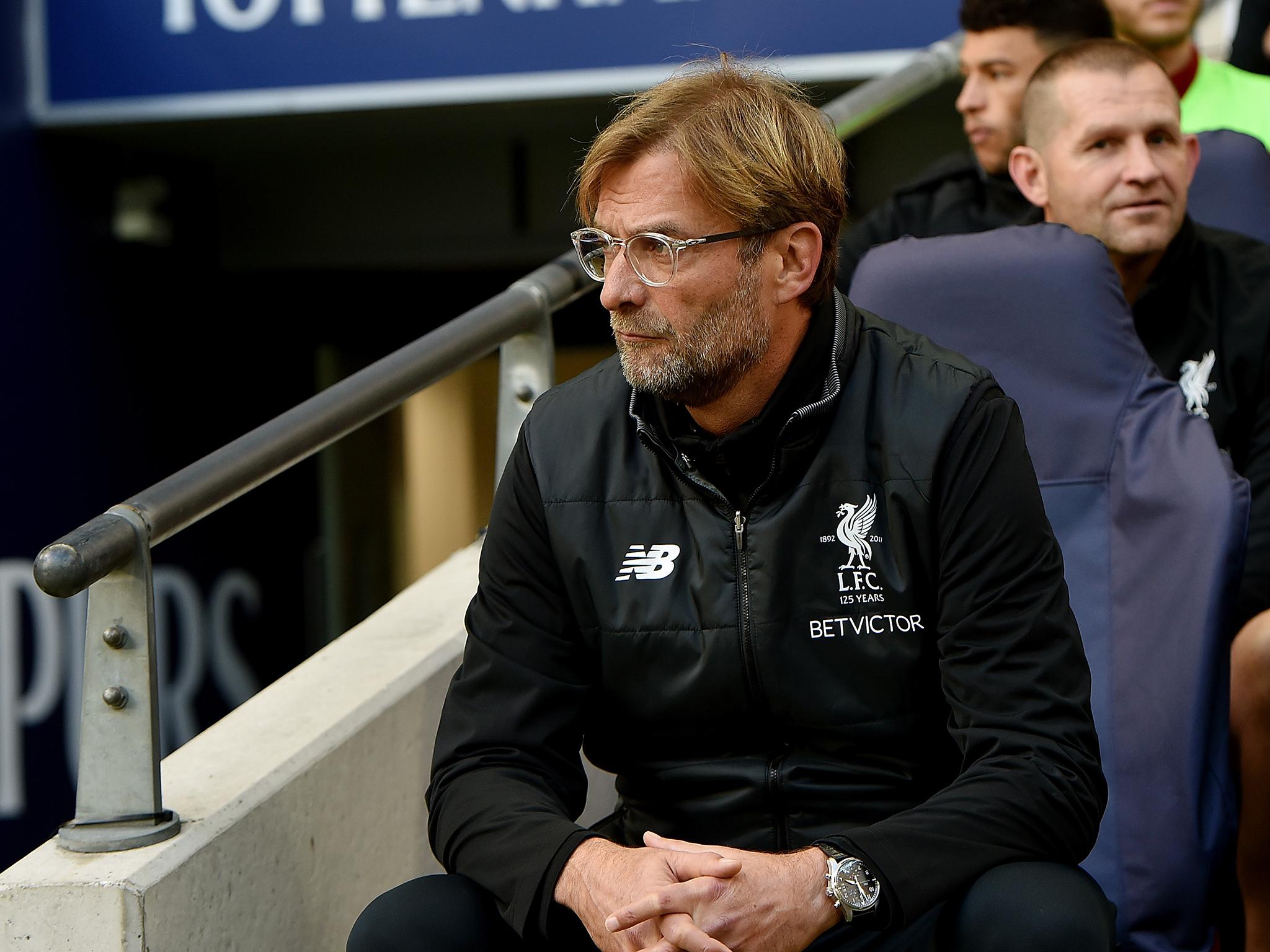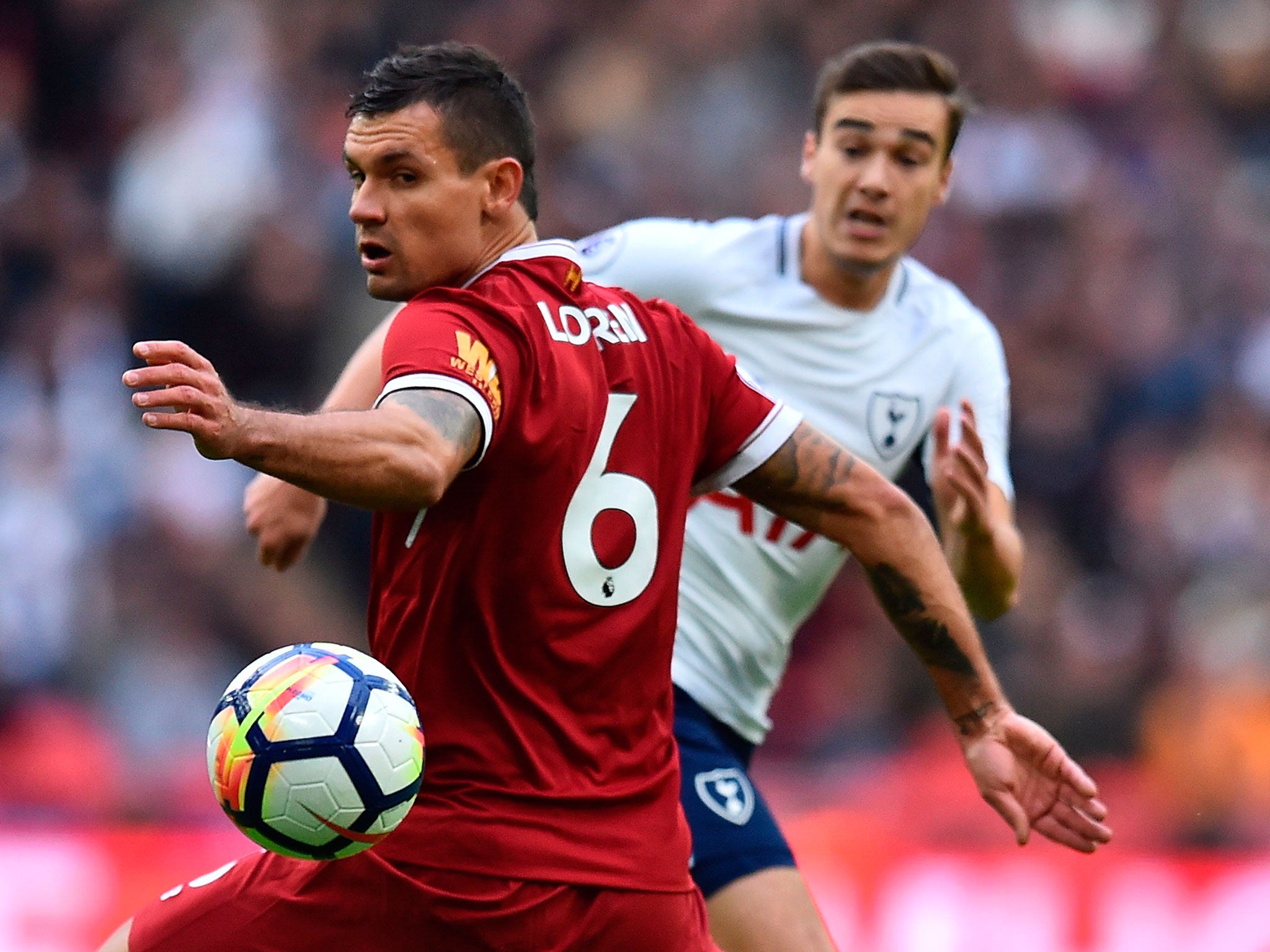Liverpool's familiar defeat by Spurs may be the moment the penny dropped for Jürgen Klopp and his defensive crisis
His reaction after the 4-1 loss was one of resignation and realisation that there is no quick fix to Liverpool's deep-rooted problems at the back

Your support helps us to tell the story
From reproductive rights to climate change to Big Tech, The Independent is on the ground when the story is developing. Whether it's investigating the financials of Elon Musk's pro-Trump PAC or producing our latest documentary, 'The A Word', which shines a light on the American women fighting for reproductive rights, we know how important it is to parse out the facts from the messaging.
At such a critical moment in US history, we need reporters on the ground. Your donation allows us to keep sending journalists to speak to both sides of the story.
The Independent is trusted by Americans across the entire political spectrum. And unlike many other quality news outlets, we choose not to lock Americans out of our reporting and analysis with paywalls. We believe quality journalism should be available to everyone, paid for by those who can afford it.
Your support makes all the difference.If so much of Liverpool’s performance against Tottenham Hotspur on Sunday was so depressingly familiar, there was at least one very conspicuous – and potentially very relevant – element to it that was different. It was Jürgen Klopp’s reaction to it all, and what that may represent.
There was first of all the day's main talking point of how he took the drastic decision to haul off Dejan Lovren after 31 minutes, an unprecedented and thereby jarring move for the German, but also how he spoke about it all afterwards. This time there was no sniping back at critical questions, no sarcasm, and a concession that “whatever you say about us in a negative way” would be right. There was also Klopp’s reaction to being told that his side had now been responsible for Liverpool’s worst defence record after just nine games since 1964-65, having conceded 16 goals. This did seem to throw him, as he notably returned to it later in his press conference, almost saying to himself “I can’t believe it”.
The logical question from all that is whether this was then the moment – and the match – that a deeper realisation finally sank in for Klopp, when the penny really dropped, when he knew he really had to properly address his defensive issue.
If it is, there will also be the realisation that there really is no quick fix to this.
Just as every single goal that Liverpool concede is actually down to more than the obvious individual mistakes that are most directly responsible for them, the flaws in that backline are down to much more than any one factor. It is actually a perfect storm of problems, leading to the most imperfect defending the club has seen in over 50 years.
There is first of all the very quality of that backline. Only two of the players available for the five that would make up any rearguard – including the goalkeeper – could really be considered close to title-winning quality. One is Joel Matip and the other is Nathaniel Clyne, who isn’t even available right now. Klopp might have already disputed such notions with eyebrow-raising claims that there aren’t many superior replacements or that the existing players are “100%” of Liverpool standard but it remains difficult to know whether he actually believes to that or it is mere deflection.
It should not deflect from the fact that he does deserve criticism for just not doing anything about this already. He is now just over two years into the job and so little has been spent on the goalkeeping and central defensive positions even though they were already causing a lot of strife from even before his time. That was so patently clear from how they conceded 48 goals in 2014-15 and 50 in the title challenge of 2013-14 but so confusingly hasn’t been confronted.
Klopp obviously wanted to sign Virgil van Dijk from Southampton but the lack of any kind of back-up plan – for a contingency in the event they didn’t get him – is even more confusing. It’s also hard not to call it basic poor planning.
On another level even beyond just quality, some close to the club feel that the very lack of competition at centre-half has had a further effect, both consciously and sub-consciously, furthering a softness. Klopp said after the Spurs game that it was now an “open race” as to who would start because they were that bad, but it’s not like this race has too many riders in it.

As regards Van Dijk, his very quality and assurance would have undeniably lifted the level of the defence and ensured fewer individual mistakes were made, but could he really so completely fix the collective? Maybe, given what Liverpool are right now, the question should be inverted. How much would the team structure begin to affect Van Dijk, and cause more errors in his own game?
One of the things that is so utterly galling about Liverpool is how much their backline struggles with some of the basic things in the game, the sort of moves that all of these players – regardless of their quality – would have dealt with with ease throughout their careers. Now, the simplest of long balls into the box seems to cause utter panic. Some of this is so fundamental that any “coaching” or training ground work shouldn’t really come into it. Spurs’ first goal on Sunday summed this up. A throw just flung into the box wrought panic and confusion and an apparent overriding of any kind of concentration.
Errors like that do point to a wider context, as if the individual players in individual moments are influenced by the structure around them, and the debate around it all.
Klopp’s attacking style and how inevitably open their games are have been much discussed and some of it is just the inherent risk of employing him, something you have to accept and put your trust in. The evidence suggests it is worth it in the long term. In the short term, though, some of it is down to other issues that have inexplicably not been fixed. Some of it again comes back to transfers, too, and what they represent.

The Naby Keita deal for next summer was so celebrated when announced, but what hasn’t really been said is that it has left them with a big issue now, especially with Lucas Leiva having gone. It means there is nobody to sit there and hold position – or at least have the physicality to get across and cover to make life easier for that defence. This is something even more confusing. Given that Klopp’s teams attack with such abandon, and the defence can be left so exposed, it should be all the more important to have a player – a Sven Bender-type – who can sit there and just make life that bit easier for the backline. It should, really, be essential. Instead, sources say that Klopp actually encourages the players in that position to run.
That might well be something he now looks at, that he tries to address. There is similarly the supposed near-complete concentration on the attack in training.
This has all been said before, and Klopp has heard so much of this before. Sunday at Wembley, however, may have properly concentrated his mind.
If it doesn’t, what will?
Join our commenting forum
Join thought-provoking conversations, follow other Independent readers and see their replies
Comments